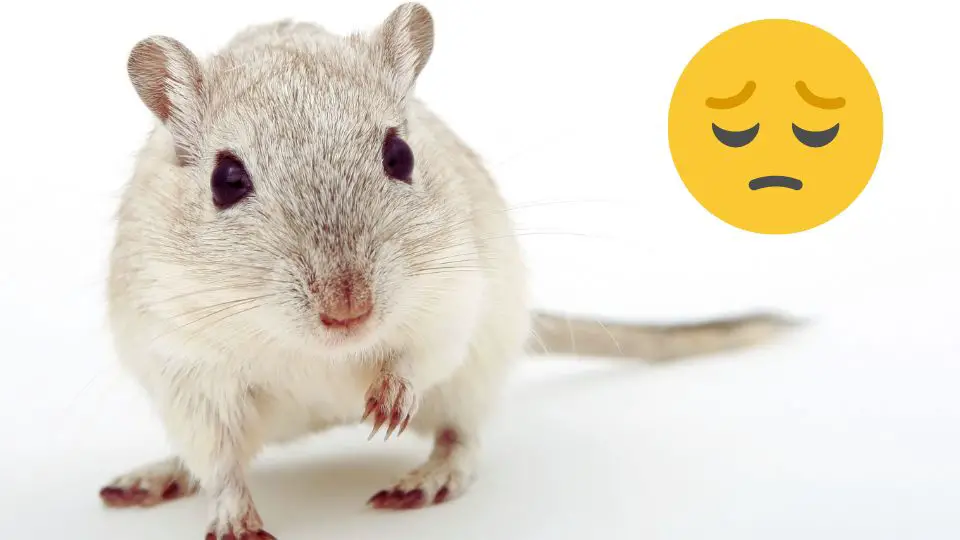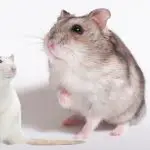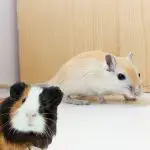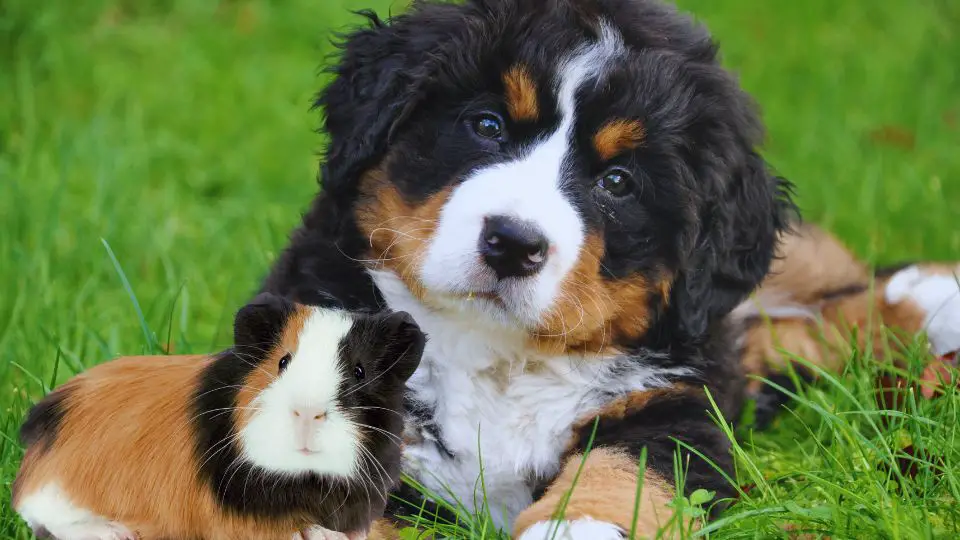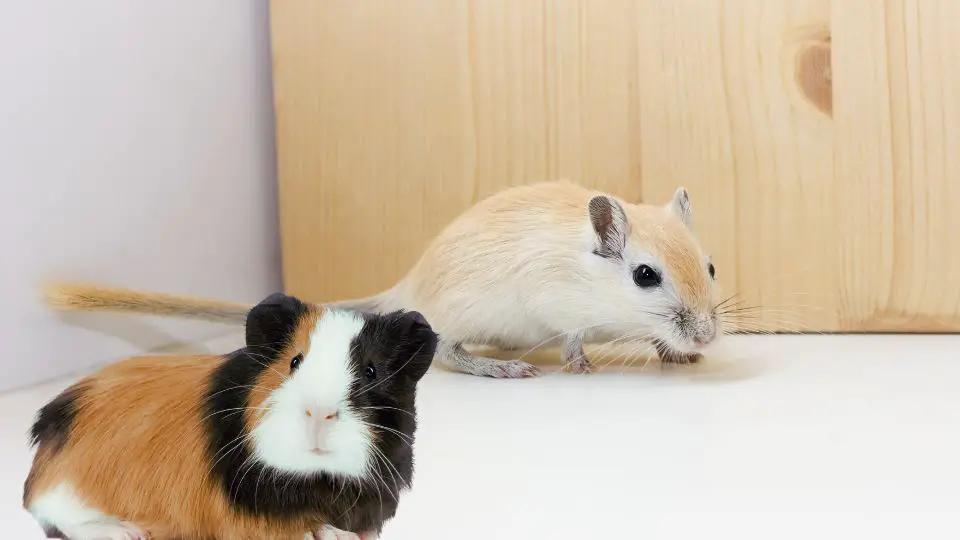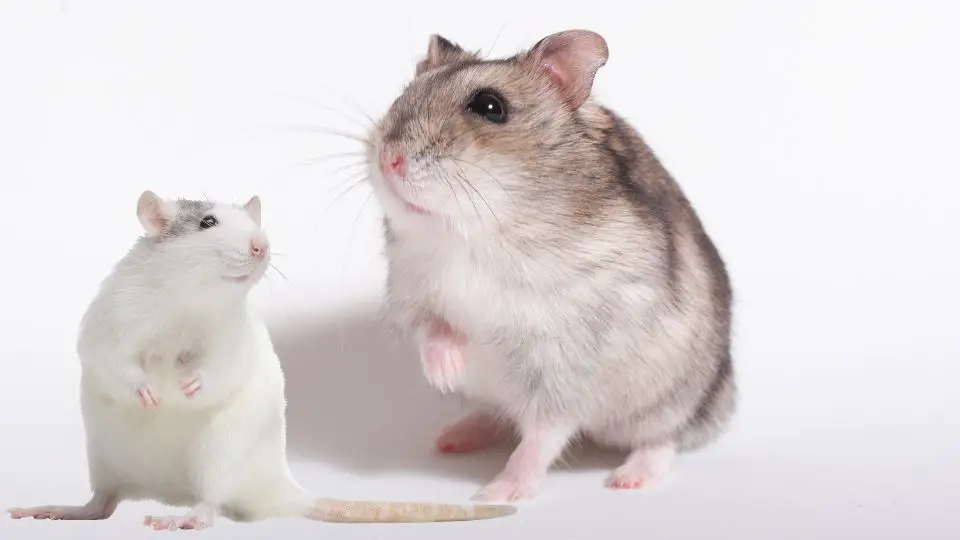Gerbils, like many other social animals, form strong bonds with their companions. When a gerbil experiences the loss of a companion or undergoes significant changes in their social environment, it raises the question of whether they grieve.
Yes, gerbils are capable of experiencing grief. When a gerbil loses a companion or undergoes significant changes in their social environment, they can exhibit signs of grief such as loss of appetite, withdrawal from social interactions, changes in activity levels, and vocalizations or distress calls.
In this article, we will explore the topic of gerbil grief and delve into the various scenarios in which gerbils may grief.
Do Gerbils Grieve?
Yes, gerbils can experience grief. Gerbils are social animals that form strong bonds with their cage mates, and the loss of a companion can have a profound impact on them. While grief in gerbils may not be as complex as in humans, they can exhibit signs of distress and emotional response when a companion passes away.
These signs may include loss of appetite, withdrawal from social interactions, changes in activity levels, and vocalizations or distress calls. Each gerbil may respond to grief differently, and the duration and intensity of the grieving process can vary among individuals.
You have to provide a supportive and comforting environment for a grieving gerbil, offering enrichment activities and distractions to help alleviate their distress. If needed, seeking guidance from a veterinarian experienced in small animal care can provide further support and assistance in managing gerbil grief.
Why Do Gerbils Grieve?
Gerbils are social animals that form strong bonds with their cage mates, making them capable of experiencing grief when they lose a companion. Understanding the grieving behavior of gerbils can help you provide the necessary support and care during these difficult times of your small pet.
Do Gerbil Grieving the Loss of a Sibling?
When a gerbil loses a sibling, it can experience grief and exhibit signs of distress. Gerbils often form close bonds with their siblings, spending a significant amount of time together and relying on each other for companionship. The loss of a sibling can disrupt their social dynamics and lead to feelings of loneliness and sadness.
Gerbils may display changes in behavior, such as decreased activity, loss of appetite, or increased vocalizations. Providing a comforting and enriched environment, along with extra attention and companionship, can help gerbils cope with the loss of a sibling.
Do Gerbils Grieve for Humans?
While gerbils may not form the same level of attachment with humans as they do with their cage mates, they can still exhibit signs of distress or confusion when a human caregiver is no longer present. Gerbils can recognize familiar scents and voices, and the absence of a human they have formed a bond with can be unsettling for them.
You should maintain a consistent presence and provide positive interactions to help gerbils feel secure and connected.
Do Gerbils Grieve for a Bonded Partner?
When a gerbil loses a bonded partner, they can experience profound grief. Bonded gerbil pairs spend a significant amount of time together, engaging in activities such as grooming, playing, and cuddling. The loss of a bonded partner can result in a range of grief-related behaviors, including withdrawal, decreased appetite, increased vocalizations, and decreased activity levels.
Providing extra companionship, environmental enrichment, and a supportive environment can help gerbils navigate the grieving process and gradually adjust to life without their bonded partner.
Signs of Grief in Gerbils
While individual gerbils may display grief in unique ways, there are several common behaviors that may indicate they are experiencing grief. Here are the most common signs of grief in a gerbil in our experience:
Loss of appetite
One of the most noticeable signs of grief in gerbils is a loss of interest in food. Grieving gerbils may eat less or refuse to eat altogether. Monitor their eating habits and offer enticing, nutritious food options to encourage them to eat.
Grieving gerbils may become more withdrawn and spend more time alone. They may avoid interacting with their cage mates or show a reduced interest in playing or grooming activities. This withdrawal is a way for them to process their emotions and cope with their loss.
Changes in activity levels
Grieving gerbils may exhibit changes in their activity levels. They may become less active, spending more time huddled in one spot or sleeping for longer periods. On the other hand, some gerbils may display restless behavior, constantly moving around or exhibiting signs of anxiety.
Vocalizations or distress calls
Grieving gerbils may vocalize more frequently or make distress calls. They may produce high-pitched squeaks or chirps as a way to communicate their distress or seek reassurance from their companions or caregivers.
Remember that each gerbil is unique, and their response to grief may vary. Some gerbils may exhibit all of these signs, while others may only display a few. Additionally, the duration of grief can vary from gerbil to gerbil. Some may recover relatively quickly, while others may take longer to adjust to the loss.
Coping Strategies for Grieving Gerbils
Losing a companion or going through a significant change in their social environment can be a challenging time for gerbils. As a responsible pet owner, you should provide support and help gerbils cope with their grief. Here are some coping strategies to consider when you have a grieving gerbil:
- Provide a supportive and comforting environment: Creating a safe and comforting space is crucial for a gerbil dealing with grief. Ensure their cage is set up with cozy bedding, hiding spots, and familiar items that provide a sense of security. Minimize any sudden changes or disruptions in their environment, as this can further contribute to their stress.
- Offer enrichment activities and distractions: Engaging gerbils in stimulating activities can help distract them from their grief and provide mental stimulation. Provide plenty of chew toys, tunnels, and other enrichment items to keep them engaged. Introduce new toys or rotate their existing ones to prevent boredom. Play gentle music or provide white noise to create a soothing atmosphere.
- Consider gradual introduction of a new companion: If your gerbil has lost a bonded partner, you may consider the option of introducing a new companion gradually. However, it’s essential to take the grieving gerbil’s emotional state into account. Introduce a new gerbil of the same sex and compatible temperament slowly, allowing them to become acquainted through scent swapping and supervised interactions. Not all gerbils will readily accept a new companion, so monitor their reactions closely and be prepared to separate them if necessary.
- Maintain a consistent routine: Keeping a consistent daily routine can provide a sense of stability and familiarity for grieving gerbils. Stick to regular feeding times, playtime, and interactions to establish a predictable schedule. This can help them feel more secure and reassured during this period of adjustment.
- Provide gentle attention and reassurance: Grieving gerbils may benefit from additional attention and reassurance from their caregivers. Spend extra time near their cage, talking to them in a calm and soothing voice. Avoid forcing interactions if they seem reluctant and let them approach you at their own pace. Gentle stroking or offering treats can help reinforce positive associations and provide comfort.
- Monitor their well-being: Keep a close eye on the grieving gerbil’s overall health and well-being. Ensure they are eating and drinking adequately and maintain a healthy body weight. If you notice any significant changes in their behavior or prolonged signs of distress, consult a veterinarian experienced in small animal care for guidance.
Conclusion
In conclusion, gerbils are social animals that can exhibit signs of grief when faced with the loss of a companion or significant changes in their social environment. While their expressions of grief may differ from those of humans, gerbils can experience feelings of sadness and distress.
It is important for gerbil owners to be observant and responsive to their gerbil’s emotional well-being, offering comfort, reassurance, and a supportive environment during times of grief. By understanding and acknowledging the potential for gerbil grief, we can provide the necessary care and empathy to help them cope with their emotions and gradually find their way back to a more balanced state of well-being.

